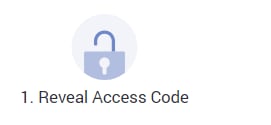Buy a new version of this textbook and receive access to the Connected eBook with Study Center on Casebook Connect, including lifetime access to the online ebook with highlight, annotation, and search capabilities. Access also includes practice questions, an outline tool, and other helpful resources. Connected eBooks provide what you need most to be successful in your law school classes.
Defining Crimes, Fifth Edition, by the distinguished author team of Joseph L. Hoffmann (Indiana) and William J. Stuntz (late of Harvard), breaks from the tradition of Model Penal Code-centric casebooks and focuses instead on the rich intellectual and theoretical issues that arise from how crimes actually get defined and applied today by state and federal legislatures, trial and appellate courts, police, prosecutors, defense lawyers, and juries. The innovative approach of Defining Crimes enables the in-depth study of the problems and issues that affect the day-to-day contemporary practice of criminal law.
New to the Fifth Edition:
- New principal cases: City of Grants Pass v. Johnson; Ruan v. U.S.
- More tightly-edited cases
- New “roadmap” introductions to each set of Notes and Questions, providing guidance to both students and faculty
- Updated California Penal Code §261 (Rape) and §261.6 (Consent)
- New and updated notes:
- Model Penal Code’s influence
- Elonis and the future of federal mens rea
- The federal law of robbery
- “Money or property” fraud (Ciminelli v. U.S.)
- “Honest services” fraud (Percoco v. U.S.)
- Drug possession and “guilty knowledge” (State v. Cleppe)
- Mens rea for drug possession (Diaz v. U.S.)
- Acquaintance rape (People v. Weinstein)
- Modern rape statutes (Indiana Code § 35-42-4-1)
- Relationship between causation and mens rea (Michigan v. Crumbley)
- Presidential immunity (Trump v. U.S.)
- Entrapment by estoppel (People v. Chacon)
- Privacy and substantive criminal law (Dobbs v. Jackson Women’s Health Organization)
- Constitutional status of moral culpability (Kahler v. Kansas)
- Distinguished authors.
- Strong emphasis on the traditional approach to mens rea still used in the large majority of American jurisdictions—including “general intent,” “specific intent,” malice, mistake doctrine, and strict liability. The Model Penal Code is also covered, for sake of comparison and because its alternative mens rea approach is used in some jurisdictions.
- Strong emphasis on the most commonly prosecuted crimes, including Property Crimes, Drug Crimes, and Crimes of Sex and Sexual Violence.
- Sub-chapter on Rape is carefully designed to prompt thoughtful class discussion about acquaintance rape, intoxication, “no means no,” and “yes means yes” laws and policies.
- Focus on the complex interactions between key institutional players—legislatures, courts, police, prosecutors, defense lawyers, and juries—that share responsibility for defining and applying crimes.
- Introductory sections to explain the fundamentals of criminal law that students need to know in order to understand many of the chapters and sub-chapters.
- Secondary materials provide in-depth social, historical, and/or political context for many of the issues that are covered in the book.
- Contemporary, with most main cases decided since 2000, and notes that discuss cases drawn from today’s headlines.

![Defining Crimes [Connected eBook with Study Center],9798892076388 9798892076388](https://simages.ecampus.com/images/d/6/388/9798892076388.jpg)










